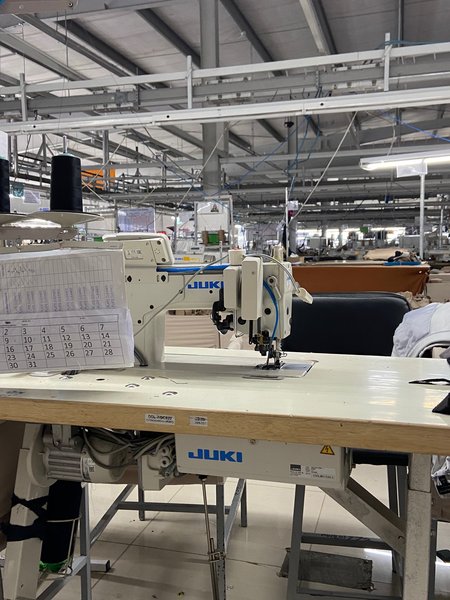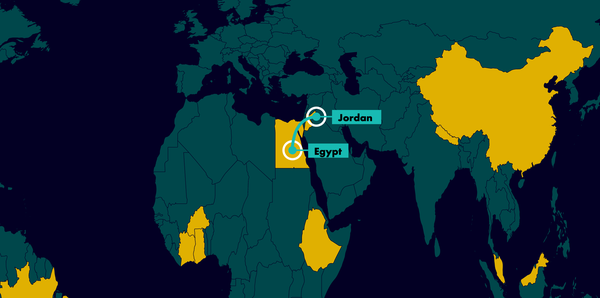
Farmers after completing pesticide spraying at the Abu Kishik Farm in Mafraq, Jordan. Photo by Seersa Abaza / IWMI. CC-BY-NC
This working paper was authored by Duaa Ajarmeh, Rawan Rbihat, Dalia Haddad and Maysara Damagh of the Information and Research Center – King Hussein Foundation.
Summary
This paper on migrant Egyptian workers in Jordan provides an overview of the current economic environment, historical pattern, and legal framework of Egyptian workers’ migration to Jordan. Based on both primary and secondary research, the paper explores the major factors behind Egyptian workers’ migration, the issues and difficulties that Egyptian migrant workers have faced during their work, their relationships with their families, and their social lives in Jordan. This paper aims to give readers a clear idea of what Egyptian migrant workers experience in Jordan before and after COVID-19 in their work, their families, and societies. It provides a baseline for policymakers and other organisations working on the same issue.
Factors behind migration
Egyptian migrant workers are pulled by more economic opportunities and better living standards in Jordan, while at the same time pushed by the poor economic and social conditions in their home country. Customs, traditions as well as social respect also play into the motivation for migration. For female migrants, marriage and chances for a new life plays another important role.
Most Egyptian migrant workers rely on various forms and often multiple levels of intermediaries to gain a work permit and a work contract in Jordan. Illegally, they are required to pay commission fees to intermediaries that can reach 4,300 USD. Intermediaries include migrant workers’ relatives and friends, as well as those in close relationships with the employers and companies themselves. The former often put migrant workers into contact with the latter form of intermediaries. This research found that illegal contract trading and the number of various intermediaries add to the costs of migration and increase migrant workers’ suffering. Migrant workers are placed in a vulnerable condition because of their lack of knowledge about the situation in Jordan.
Migration and its impacts on families
This research found that male migrant workers and their wives (either in Egypt or in Jordan) perform different family roles. Male workers take the financial responsibility whilst their wives play a more domestic role. However, noticeably, female migrant workers sometimes need to perform both roles, the domestic and the financial. Migration affects the children of migrant workers both negatively and positively. Children’s living standards and education opportunities can be improved by parental migration. However, they might suffer detriments through missing their parents as they grow up.
Migrant workers, working conditions and rights
The majority of Egyptian migrant workers are employed in agriculture since a work permit is affordable and easy to get. However, Egyptian migrants prefer to work in the construction or service industries, where they may make more money, despite the fact that they only possess a work permit for the agriculture industry. This research found that the working conditions for Egyptian migrant labourers are often deplorable. In part, this is because Egyptian workers are viewed by employers in Jordan as more tolerant of difficult labour conditions and willing to accept lower wages.



